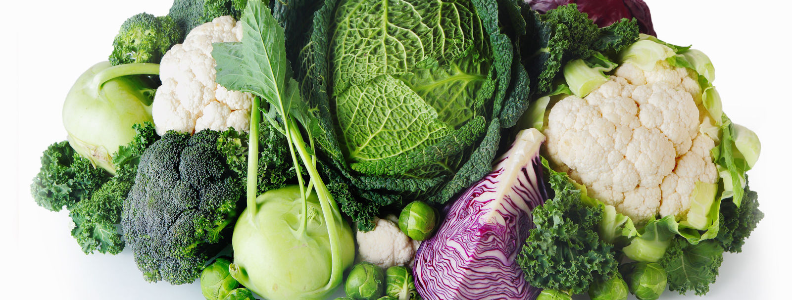Reasons Why You Should Eat Cruciferous Vegetables
Leafy green vegetables such as kale, cauliflower, Brussels sprouts, broccoli, bok choy, collard greens, cabbage, turnips, and arugula are all members of the powerhouse family Cruciferae, more commonly called cruciferous vegetables.
Not only are they the most delicious, they are also the most nutritious kinds of vegetables that are packed with greater amounts of phytochemicals, fiber, and vitamins and minerals important for our health. Even experts have recommended a daily intake of 2-3 cups servings.
Here is a breakdown of everything you should know about this group of disease-fighting and gut-health promoting vegetables.
Cancer-fighting capabilities of cruciferous vegetables
Cruciferous vegetables, according to studies, reduce the risk of many common cancers. In a study of the dietary patterns of 182,145 women, the lowest rates of the aggressive forms of breast cancer, endometrial and cervical cancers were found among those who consumed the highest amount of these type of vegetables. This may be due to Indole-3-carbinol, a hormone-balancing compound found in cruciferous veggies. It promotes the production of a less potent type of estrogen that inhibits tumor growth.
Researchers believe that glucosinolates found in these vegetables are the chief key to their cancer-fighting capabilities. These compounds were discovered to prevent cancer growth and development by protecting our DNA.
Vegetables that Lower Blood Sugar Levels
Anti-carcinogenic compounds like isothiocyanates, are broken down from glucosinolates, and can help reduce blood sugar levels. Sulfuraphane, a type of isothiocyanate, was found to be as effective as diabetes drugs at lowering blood sugar levels in animal trials. It targets genes responsible for stimulating glucose production in the liver. This coincides with the results of a study on the diets of over 306,723 people, where a link between increased intake of cruciferous vegetables has reduced diabetes risks.
Alpha-lipoic acid (ALA) is also a potent antioxidant that prevents and reverses diabetic neuropathy, a common symptom of diabetes. Other studies show that it improves nerve function in diabetic patients.
Gut-Friendly Vegetables
To keep our gut happy and thriving, a diet full of cruciferous vegetables can help support the microbiome. They also boost the immune system by stimulating innate lymphoid cells (ILCs) in the gut. These cells fight off “bad” bacteria in the gut to secure a favorable environment for the “good” bacteria.
Heart-Health Friendly Vegetables
Eight studies have confirmed that kale, broccoli and collard greens consumption reduce cardiovascular diseases by 15.8%. It may be because these leafy vegetables are rich sources of Vitamin K2, which is good for bone and heart health. Calcium transported to the bones by the vitamin keeps the arteries clear of calcium build-ups, which is a heart attack and stroke risk factor.
Cruciferous Vegetables and your Thyroid
Although animal testing has shown that high consumption of these vegetables led to goiter and hypothyroidism, there were no issues found in human studies. Only if the amount you consume exceeds normal consumption, then iodine deficiency may occur. If you suffer from hypothyroidism, it’s okay to go on consuming greens as long as you consult with your doctor first.
Source: mindbodygreen










